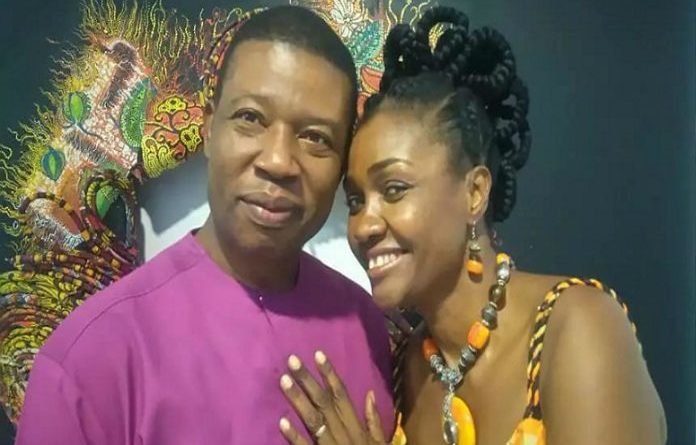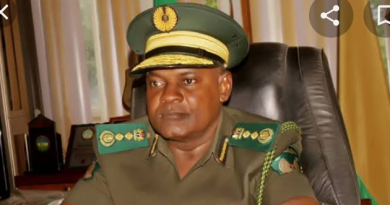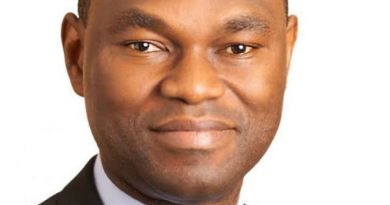Goge Africa co-founder, Nneka shares adventurous experience from tours to four continents and 30 African countries
Nneka Isaac Moses is the co-founder and Managing Director of Goge Africa Worldwide Limited, producer of a pan-African tourism programme, Goge Africa. She shares her adventurous experience from her tours to four continents and 30 African countries with the Punch Correspondent
October marks the 20th anniversary of Goge Africa. How would you describe your experience so far?
It’s been exciting. It’s been a learning process. It’s been challenging. But it’s been quite a journey.
What has the programme helped you to achieve?
It has helped me to add value to our society because we come from a society where people run away from culture and heritage. Many people want to be like those in the western world and appear ‘civilised’. But Goge Africa has helped us to preserve our culture, history and heritage and, for me, being a part of that process is an achievement.
Did you and your husband think the programme would be a success when the idea first came up?
When we conceptualised Goge Africa, honestly, we just wanted to have fun. We love travelling, telling stories, meeting people and experiencing cultures. So, we decided to share our experience. That was what we had in mind and we decided to experience the lives of our own people because we were not happy with what we saw in the western media; they like to depict us as backward and as a Dark Continent. But from our own point of view, all we could see was the beauty of our people – Nigeria and Africa. So, we decided to do that ourselves and have fun doing it. When we started, my husband was into modelling; he was a Nollywood actor and a voiceover artist. I was strictly into fashion but we decided to invest money in Goge Africa and have fun. There was no business plan; all we had was the passion to do it. Somehow, the way to do it came and people loved what we were doing and today, it has become what it has become.
How many continents and countries have you visited through the programme?
I know I have visited, at least, four continents. We have been to India in Asia, France in Europe, North America and South America. On the African continent, we have visited over 30 countries out of 54.
Which of your trips was the most memorable?
All of the trips were enjoyable; I don’t have a preference. But when the President of The Gambia hosted us as his personal guests on the occasion of his 40th birthday, it was special to us. After the birthday, we stayed with him in his village for two weeks.
What were the strangest places you visited?
One of the strangest places (we have visited) is actually very close to us in Nigeria – Temple des Pythons (Temple of Pythons) in Ouidah, Benin Republic. The first day we got there, we saw four children lying on the ground around the temple and the people there were waiting for the pythons to move round each child to show that the child was a member of the clan. I found that very strange. Not knowing what to do, my husband and I stood at the entrance of the temple and began to make a presentation. But we noticed that the cameraman was tilting in an unusual way but remained still. When I turned, I saw a python that looked like it was going to make a presentation with us. That was quite an experience.
Another experience was when we went to Uganda, to the Bwindi Impenetrable Forest National Park. We were tracking the silverback gorilla and its family. We were told not to look at the gorilla in the eyes because it would think we were confronting it. We were told not to wear bright-coloured clothes or wear perfume or perfumed cream. When we eventually saw the silverback, it was a sight to behold.
What were your scariest moments?
For me, the trip to Uganda was the scariest. We had armed rangers. When asked why they were armed, they told us that it was to guard against attacks by wild animals – by killing the animals or sedating them. For me, it was a risky trip. We also visited a cave in Kebbi State; the guys there were weird. We went to the cave after the Emir of Zuru gave us two guards to tell the people in the cave that we wanted to do a feature on their type of worship. They allowed us in and we saw a big crocodile with grass growing on its back. They told us that the animal was worshipped and people came with all kinds of requests. When we were done, they allowed us to go. But when a team from a government media outfit came to do something similar, the cameraman was killed while the producer managed to escape. The camera was destroyed. It was weird.
What was your experience with food during your trips?
We were told in Ethiopia that during the war there, their warriors couldn’t cook because the smoke exposed them to the enemies. So, they decided to eat raw meat; each time they caught an animal, they killed it and ate the meat uncooked. That became a part of their heritage. Today, they spice raw meat and serve as a special meal. We were welcomed with that along with other meals.
Did you eat the uncooked meat?
One of us had to eat it. So, I ate it; but if they had not told me that it was raw meat, I would have thought I was eating cooked but cold meat because of the spice used. If we had rejected the meal, it would have been seen as an insult to their tradition. That was the first time I ate uncooked meat and I can’t forget the experience.
Can you tell us a little about your childhood?
I am from Ihiala, Anambra State, and married into Enugwu Ukwu also in Anambra. I attended Methodist Girls’ High School, Lagos; and the University of Lagos, where I studied English. Growing up, my mum was my role model because my dad passed on early. She had to hold the family together. She is one of those women I see as Amazons; she is firm. I looked up to her and I think I got my industrious spirit from her. She was a teacher and a trader; she has a tailoring institute.
You and your husband started Goge Africa as a couple in 1999. When did you meet him?
We met in 1996 on the set of a movie, Love in Vendetta, which was produced by Zack Orji, I think. I was costuming for the movie at that time when I was told to play his girlfriend in the movie. After that, one thing led to another and we decided to consummate the relationship and got married the following year.
How were you convinced that he was right for you?
Truly, I didn’t know whether he was the right person but I liked being with him because he is fun to be with. When he talks, I listen. My bargain for the marriage was to be happy and I told myself that I thought he could make me happy. He was not wealthy at that time but he was fun to be with. We went out every weekend; we visited Amala joints. They were little things but the spirit with which he gave the little he had was fun.
What did your parents think?
My people felt that he was a musician because they heard his voice on the radio and saw him in commercials and felt that he was not fit for me. But today, they know better.
You have a son. What does he do when you are on your trips?
Most of the time, he travels with us but he is in school now. So, we try to fix the trips during his holidays. When we can’t, we have family members that take care of him.
Would you say that your trips have helped you to bond with your husband?
Yes. We always look forward to our trips. They have helped us relive our honeymoon again and again. They spice up our marriage. Most of the countries we have visited showed us the best hospitality they had. We recently returned from Senegal where we lodged in the best hotel they had. In the morning, someone waited to take us to visit sites that people pay to see, we ate what we liked and ordered the best wine. Actually, we were paid to have a holiday. We also have a partnership with Royal Caribbean (International), a luxury cruise liner; they invited us and in partnership with Delta Airlines. We did not pay for anything. They wanted us to see what they had. We went to Porto Rico, Sint Maarten and Labadee in Haiti, and Florida in the US, all-expense paid. So, our job looks like we are condemned to a lifetime of holiday .
How would you assess the Nigerian tourism industry?
The Nigerian tourism industry is real money if properly harnessed. It has the potential to alleviate poverty and increase revenue.
(The PUNCH)




